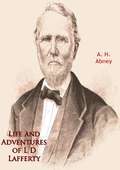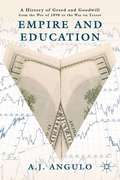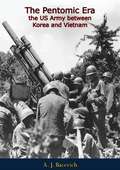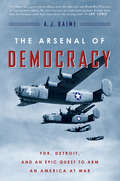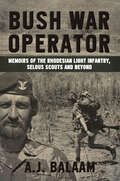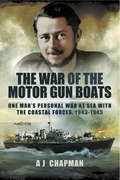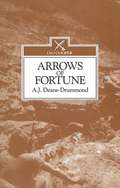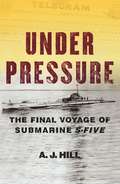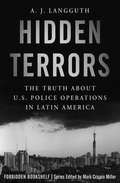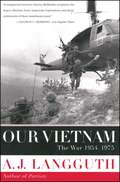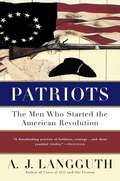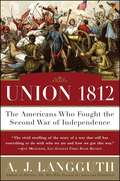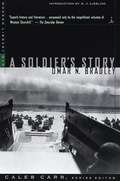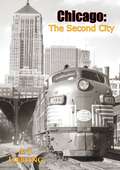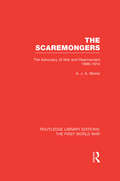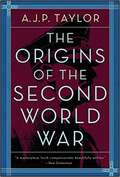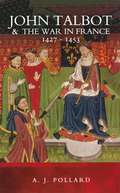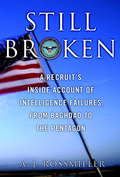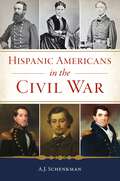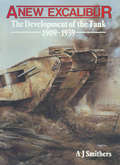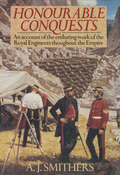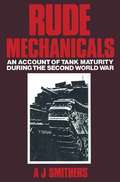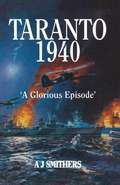- Table View
- List View
Life and Adventures of L D Lafferty: Being A True Biography of One of the Most Remarkable Men of the Great Southwest
by A. H. AbneyThe story chronicles the escapades of Lafferty through the Louisiana, Missouri and Arkansas Territories, the lands of the Old Settler Cherokees, and into the new frontier of Texas."L. D. Lafferty has been described as a rough ashlar of reckless daring and thoughtless intrepidity and a youthful adventurer who had fought Indians at the age of 15." - We Never Retreat: Filibustering Expeditions into Spanish Texas (2015)"L. D. Lafferty, a contemporary of Lafitte's, recalled that Lafitte frankly confessed that he had enough silver and gold on the island to freight a ship." -Mysteries and Legends of Texas (2010)"Lorenzo Dow Lafferty, son of a Tennessee Indian trader who followed the Cherokees to Arkansas in 1810, spent three of his teenage years (1815-1818) living in a Cherokee town on the White River." -The Arkansas Historical Quarterly (1997)
Empire and Education
by A. J. AnguloThis book is about education and American imperialism from the War of 1898 to the War on Terror. Very little coordinated or sustained research has been devoted to the broader contours of America, education, and empire. And third, this volume seeks to inspire new directions in the study of American educational history.
The Pentomic Era: The US Army between Korea and Vietnam
by A. J. BacevichThis essay is a brief history of the U.S. army during the years immediately following the Korean War. For many in our own time that period—corresponding to the two terms of the Eisenhower presidency—has acquired an aura of congenial simplicity. Americans who survived Vietnam, Watergate, and painful economical difficulties wistfully recall the 1950s as a time when the nation possessed a clearly-charted course and had the will and the power to follow it.
The Arsenal of Democracy: FDR, Detroit, and an Epic Quest to Arm an America at War
by A. J. BaimeA New York Times BestsellerA dramatic, intimate narrative of how Ford Motor Company went from making automobiles to producing the airplanes that would mean the difference between winning and losing World War II. In 1941, as Hitler's threat loomed ever larger, President Roosevelt realized he needed weaponry to fight the Nazis--most important, airplanes--and he needed them fast. So he turned to Detroit and the auto industry for help.The Arsenal of Democracy tells the incredible story of how Detroit answered the call, centering on Henry Ford and his tortured son Edsel, who, when asked if they could deliver 50,000 airplanes, made an outrageous claim: Ford Motor Company would erect a plant that could yield a "bomber an hour." Critics scoffed: Ford didn't make planes; they made simple, affordable cars. But bucking his father's resistance, Edsel charged ahead. Ford would apply assembly-line production to the American military's largest, fastest, most destructive bomber; they would build a plant vast in size and ambition on a plot of farmland and call it Willow Run; they would bring in tens of thousands of workers from across the country, transforming Detroit, almost overnight, from Motor City to the "great arsenal of democracy." And eventually they would help the Allies win the war.Drawing on exhaustive research from the Ford Archives, the National Archives, and the FDR Library, A. J. Baime has crafted an enthralling, character-driven narrative of American innovation that has never been fully told, leaving readers with a vivid new portrait of America--and Detroit--during the war.
Bush War Operator: Memoirs of the Rhodesian Light Infantry, Selous Scouts and beyond
by A. J. Balaam“The finest account I’ve read on the Selous Scouts . . . Andy Balaam tells it like it was—the fear, the terror, the adrenaline highs of combat in the bush.” —Chris Cocks, bestselling author of FireforceFrom the searing heat of the Zambezi Valley to the freezing cold of the Chimanimani Mountains in Rhodesia, from the bars in Port St Johns in the Transkei to the Drakensberg Mountains in South Africa, this is the story of one man’s fight against terror, and his conscience.Anyone living in Rhodesia during the 1960s and 1970s would have had a father, husband, brother or son called up in the defense of the war-torn, landlocked little country. A few of these brave men would have been members of the elite and secretive unit that struck terror into the hearts of the ZANLA and ZIPRA guerrillas infiltrating the country at that time—the Selous Scouts. These men were highly trained and disciplined, with skills to rival the SAS, Navy Seals and the US Marines, although their dress and appearance were wildly unconventional: civilian clothing with blackened, hairy faces to resemble the very people they were fighting against.Twice decorated—with the Member of the Legion of Merit (MLM) and the Military Forces’ Commendation (MFC)—Andrew Balaam was a member of the Rhodesian Light Infantry and later the Selous Scouts, for a period spanning twelve years. This is his honest and insightful account of his time as a pseudo operator. His story is brutally truthful, frightening, sometimes humorous and often sad.
The War of the Motor Gun Boats: One Man's Personal War at Sea with the Coastal Forces, 1943–1945
by A. J. ChapmanTony Chapman was born in Southampton in 1924. Aged 16 he watched with horror as the historic High Street of Southampton burnt to the ground in a firestorm caused by a heavy German bombing raid on the night of 30 November 1940. He vowed to join up and fight back. Tony joined the Navy.Within hours of being posted to his first Motor Gun Boat, Telegraphist Tony Chapman was involved in an epic Coastal Forces engagement when his flotilla took on a force of thirty E-boats. Although their unit of two MGBs sank three E-Boats, it was at a high cost. Half of Tony's shipmates were killed or injured.This was the start of an eventful and dramatic wartime service with these little warships. Tony's flotilla operated in the Mediterranean and Aegean where the Motor Gun Boats played a key role in this important but often neglected theatre.rnDaily life on these small ships is vividly described. The flotilla had a busy time showing the flag in the Levant and on combined operations in the Aegean with the Greek Sacred Regiment of Commandos. The culmination of their efforts was when Tony's boat, ML838, took the surrender of the Island of Kos in 1945.rnrnWritten from the perspective of one of the other ranks, War of the Motor Gun Boats fills an important gap in the literature of the Second World War.As featured in the North Devon Journal and Exmoor Magazine.
Arrows of Fortune
by A. J. Deane-DrummondIn this exciting memoir, a major-general in the British Army chronicles his life, service, and multiple escapes from captivity during World War II. Major-General Anthony Deane-Drummond was a famed escaper from the Germans in World War II. He first described his experiences in a book called Return Ticket. This is the full story of his life which is chiefly memorable for the story of his escape after the Battle of Arnhem.
My Rich Uncle: An Informal Guide to Maximizing Your Enlistment
by A. J. KehlWant to maximize your time in the military? Want to know what it really takes to be successful while serving your country? Ever just want someone to keep it real on the topics that mean the most to you? A.J. Kehl, a Senior Master Sergeant (SMSgt) in the U.S. Air Force, does just that and more in My Rich Uncle: An Informal Guide to Maximizing Your Enlistment. Kehl’s well-crafted guide is designed with one purpose in mind: To make sure you make the most out of your time in the armed forces. Sgt. Kehl distinguishes his book from any other you will read, pointing out all the important things that rarely, if ever, make it to print. Hot items such as promotion, leadership, networking, and traveling make this a must-read for anyone now on active duty, thinking of joining the military, or who has spent time within this unique lifestyle. My Rich Uncle includes an invaluable collection of knowledge, wisdom, and insight from numerous military leaders, all of which is geared toward helping fellow military members find success in their careers. It highlights the cultural things we expect men and women to know, or at least figure out, but which are rarely taught. This book will help you successfully navigate a military career by providing insight into the expectations and the steps for YOU to take in order to maximize your service time and set yourself up for success. It also highlights little known programs, like Air Force Lean and Continuous Process Improvement, that empower members to find root cause solutions and reduce time-wasting practices that do not further your career. My Rich Uncle: An Informal Guide to Maximizing Your Enlistment is written by an airman for men and women in all branches who want to get the most out of their service. “This is a military guide like no other!” — J. Lewis, Command CMSgt (Ret.) “The author has put together a masterpiece collection of knowledge, wisdom, and insight.” — Lt. Col. J. Failing “A recipe for success.” — L. Manley, CMSgt (Ret.)
Hidden Terrors: The Truth About U.S. Police Operations in Latin America (Forbidden Bookshelf #27)
by A. J. LangguthA &“devastating&” exposé of the United States&’ Latin American policy and the infamous career and assassination of agent Dan Mitrione (Kirkus Reviews). In 1960, former Richmond, Indiana, police chief Dan Mitrione moved to Brazil to begin a new career with the United States Agency for International Development. During his ten years with the USAID, Mitrione trained and oversaw foreign police forces in extreme counterinsurgency tactics—including torture—aimed at stomping out communism across South America. Though he was only a foot soldier in a larger secret campaign, he became a symbol of America&’s brutal interventionism when he was kidnapped and executed by Tupamaro rebels in Montevideo, Uruguay. In Hidden Terrors, former New York Times Saigon bureau chief A. J. Langguth chronicles with chilling detail Mitrione&’s work for the USAID on the ground in South America and Washington, DC, where he shared his expertise. Along the way, Langguth provides an authoritative overview of America&’s efforts to destabilize communist movements and prop up military dictators in South America, presenting a &“powerful indictment of what the United States helped to bring about in this hemisphere&” (The New York Times). Even today, the tactics Mitrione helped develop continue to influence operations in Guantanamo Bay, Cuba, and black sites around the globe.
Our Vietnam: The War 1954-1975
by A. J. LangguthWinner of the Overseas Press Club's Cornelius J. Ryan Award for Best Nonfiction Book, the Commonwealth Club of California's Gold Medal for Nonfiction, and the PEN Center West Award for Best Research NonfictionTwenty-five years after the end of the Vietnam War, historian and journalist A. J. Langguth delivers an authoritative account of the war based on official documents not available earlier and on new reporting from both the American and Vietnamese perspectives. In Our Vietnam, Langguth takes us inside the waffling and deceitful White Houses of Kennedy, Johnson, and Nixon; documents the ineptness and corruption of our South Vietnamese allies; and recounts the bravery of soldiers on both sides of the war. With its broad sweep and keen insights, Our Vietnam brings together the kaleidoscopic events and personalities of the war into one engrossing and unforgettable narrative.
Patriots: The Men Who Started the American Revolution
by A. J. LangguthThe story of the Americn Revolution told through biographies focusing on specific individuals.
Union 1812
by A. J. LangguthBy the author of the acclaimed Patriots: The Men Who Started the American Revolution, a gripping narrative that tells the story of the second and final war of independence that secured the nation's independence from Europe and established its claim to the entire continent. The War of 1812 has been ignored or misunderstood. Union 1812 thrillingly illustrates why it must take its place as one of the defining moments in American history.
Union 1812: The Americans who fought the Second War of Independence
by A. J. LangguthThe story of the War of 1812.
A Soldier's Story
by Caleb Carr Omar N. Bradley A. J. LieblingD-Day, the Battle of the Bulge, the liberation of Paris, the relentless drive through Germany toward Allied victory--Omar Bradley, the "GI General," was there for every major engagement in the European theater. A Soldier's Story is the behind-the-scenes eyewitness account of the war that shaped our century: the tremendous manpower at work, the unprecedented stakes, the snafus that almost led to defeat, the larger-than-life personalities and brilliant generals (Patton, Eisenhower, Montgomery) who masterminded it all. One of the two books on which the movie Patton was based, A Soldier's Story is a compelling and vivid memoir from the greatest military tactician of our time. The books in the Modern Library War series have been chosen by series editor Caleb Carr according to the significance of their subject matter, their contribution to the field of military history, and their literary merit.
Chicago: The Second City
by A. J. LieblingMany Chicagoans rose in protest over A. J. Liebling's tongue-in-cheek tour of their fair city in 1952. Liebling found much to admire in the Windy City's people and culture--its colorful language, its political sophistication, its sense of its own history and specialness. But Liebling offended that city's image of itself when he discussed its entertainments, its built landscapes, and its mental isolation from the world's affairs.Liebling, a writer and editor for the New Yorker, lived in Chicago for nearly a year. While he found a home among its colorful inhabitants, he couldn't help comparing Chicago with some other cities he had seen and loved, notably Paris, London, and especially New York. His magazine columns brought down on him a storm of protests and denials from Chicago's defenders, and he gently and humorously answers their charges and acknowledges his errors in a foreword written especially for the book edition.Liebling describes the restaurants, saloons, and striptease joints; the newspapers, cocktail parties, and political wards; the university; and the defining event in Chicago's mythic past, the Saint Valentine's Day Massacre. Illustrated by Steinberg, Chicago is a loving, if chiding, portrait of a great American metropolis."Good entertainment. The book is attractively designed, the illustrations are first-rate and Mr. Liebling can write."--New York Times"Mr. Liebling's entertaining book can be highly recommended."--New York Herald Tribune"He has shown his readers in his lively, sardonic style exactly the split-personality city that he feels Chicago to be."--San Francisco Chronicle
The Scaremongers: The Advocacy of War and Rearmament 1896-1914 (Routledge Library Editions: The First World War)
by A. J. MorrisThis revealing book illustrates how the passion for war was fostered and promoted. The author provides detailed evidence of how and why an image of Germany as a nation determined upon world hegemony was deliberately promoted by a group of British newspaper editors, proprietors and journalists. This book examines the role of these ‘scaremongers’. Were they as influential as their critics claimed? Did they influence the minds of their readers and shape events? Were they guilty of creating a climate of opinion that ensured that their prophecies of inevitable Anglo-German war became fact in 1914?
Origins Of The Second World War
by A. J. P. TaylorFrom influential British historian A.J.P. Taylor, a reprint of his influential text The Origins of the Second World War. Controversial for his thesis that Hitler was an opportunist with no thorough plan, The Origins of the Second World War is an extensive exploration of the international politics and foreign policy that lead up to the one of the bloodiest conflicts of the 20th century. Published in 1961, The Origins of the Second World War is a classic of modern history. A.J.P. Taylor's years of research helped change the long-accepted view that Adolf Hitler had wanted and planned in detail for a war. With clear and relatable prose, Taylor depicts the diplomatic mistakes from both the Allied and Axis powers that lead to the outbreak of World War II. A groundbreaking work, The Origins of the Second World War "is an almost faultless masterpiece, perfectly proportioned, perfectly controlled" (The Observer).
John Talbot & the War in France, 1427–1453
by A. J. PollardJohn Talbot, Earl of Shrewsbury was the last of the celebrated English commanders of the Hundred Years' War. In his lifetime his reputation for audacity and courage gave him an unrivalled fame among the English, and he was feared and admired by the French. A.J. Pollard, in this pioneering and perceptive account, reconstructs the long career of this extraordinary soldier and offers a fascinating insight into warfare in the late medieval period. Talbot was the last representative of generations of brave, brutal warriors whose appetite for glory and personal gain had sustained English policy in France since the time of Edward III. His defeat and death at the Battle of Castillon on 17 July 1453 marked the end of the wars. It was also the final act in a heroic but savage tradition.
Still Broken: A Recruit's Inside Account of Intelligence Failures, from Baghdad to the Pentagon
by A. J. Rossmiller"Graduating from college with a degree in Middle East studies, Rossmiller joined the Defense Department's Intelligence Agency in 2004 and soon volunteered to join a DIA unit in Iraq. He vividly recounts his six-month tour--the physical misery of the environment and the frustrations of feeling his work rarely made a difference. Good intelligence, he explains, begins with people on the spot (in this case usually Iraqis), who take risks but supply information that is often fragmented, out-of-date and even self-serving or false. Analysts, such as the author, tease out useful data and deliver it quickly to fighting men. Hobbled by clueless superiors and their turf wars, as well as ignorance of Iraqi culture, DIA units, including Rossmiller's, witnessed American forces repeatedly acting on poor or outdated intelligence. They killed and arrested plenty of genuine insurgents but also killed, arrested and infuriated many innocent Iraqis, which crippled their efforts. Back in Washington, Rossmiller discovered the agency under pressure to provide good news for the Bush administration. Superiors regularly rejected his analyses of Iraqi politics as "too pessimistic." If repeated rewrites lacked an upbeat conclusion, superiors inserted one. That his predictions turned out to be correct made no difference. This intense, partisan arm-twisting devastated morale, resulting in an exodus of agency experts, including the author. "Rossmiller gives a lively insider's view of the petty and not-so-petty politics that affect the intelligence our leaders receive in their efforts to pacify Iraq; it is not a pretty picture." -Publishers Weekly. After 9/11, billions of dollars were spent to overhaul America's dysfunctional intelligence services, which were mired in bureaucracy, turf wars, and dated technology. But in this astonishing new book, A. J. Rossmiller, a former Defense Intelligence Agency analyst honored for his efforts here and in Iraq, reveals firsthand evidence that the intelligence system remains in disrepair. Still Broken is a blistering account of the ideology and incompetence that cripple our efforts to confront our enemies and fight our wars. Like many Americans, Rossmiller was moved to action by the attacks on 9/11. Freshly graduated from Middlebury College, he went to work for the U.S. government in 2004. But his enthusiasm slowly turned to disillusion as he began to fulfill his duties for DIA, the spy arm of the Department of Defense. There he found the Cold War and 9/11 generations at odds, the cause of fighting terrorism superseded by the need to contain a dismally managed war in Iraq, the Bush administration widely mocked and distrusted, and the intelligence process crippled from top to bottom. Rather than give up, Rossmiller instead went further, volunteering to go to Iraq to aid the troops on the ground, contribute to tactical intelligence, and, he hoped, help bring about an end to a fatally mismanaged war. For six months in that besieged country, he worked for the Direct Action Cell, the "track 'em and whack 'em" unit devoted to unmasking and targeting insurgents. He learned that, to put it mildly, the intelligence process bears no resemblance to the streamlined, well-resourced, and timely operation in a James Bond or Jason Bourne movie. He also experienced the disastrous counterterrorism and detainee strategies for which mass imprisonment--with little interest in guilt or innocence--is standard operating procedure. Back at the Pentagon as a strategic issues expert in the Office of Iraq Analysis, Rossmiller saw the administration's heavy hand in determining how information is processed. In a dysfunctional office filled with outsize personalities and the constant drone of Fox News, he filed reports on the ever-worsening situation in Iraq...
Hispanic Americans in the Civil War (Civil War Series)
by A. J. SchenkmanForgotten Fighters and Unknown ExploitsMore than twenty thousand Hispanic Americans served in the Civil War. When Cuban-born Loreta Janeta Velázquez’s husband would not allow her to join him on the battlefield, she assumed the role of First Lieutenant Harry T. Buford to be near him. Philip Bazaar, born in Chile, was awarded the Medal of Honor for his courageous exploits during the assault of Fort Fisher. The spying efforts of Floridian Maria Dolores “Lola” Sánchez and her two sisters led to a Union defeat at the Battle of Horse Landing. Union Admiral David Farragut, of Spanish descent, was not only the navy’s first admiral, but he was also the man who uttered the famous phrase, “Damn the torpedoes, full speed ahead.” Delving into the lives of these figures and more, A.J. Schenkman uncovers this often-overlooked aspect of Civil War history.
A New Excalibur: The Development of the Tank 1909–1939
by A. J. SmithersThe story of the inventors, engineers, soldiers, and politicians behind the emergence of the armored fighting vehicle. The birth and infancy of the tank had an enormous number of technical problems to be solved—but the issues with its construction paled in comparison to the endless squabbles among the people involved. This fascinating study of the vehicle which was born out of the stalemate of the Western Front in the First World War looks at all the obstacles that had to be overcome. As is inevitable in almost any work of history set in the first half of the century, the figure of Winston Churchill looms large—but the role that he played in this instance is remarkable even by his standard, when it is remembered that at the crucial time he was First Lord of the Admiralty and theoretically had nothing to do with warfare on land. Foremost among the leading actors in the drama are Sir Eustace Tennyson-d&’Eyncourt, Sir Ernest Swinton, Bertie Stern, Sir William Tritton, and Walter Gordon Wilson. This is the first exhaustive study of the men behind the earliest tanks. The story of their furious quarrels and the machines they produced combine to make a remarkable and compelling study.
Honourable Conquests: An Account of the Enduring Work of the Royal Engineers Throughout the Empire
by A. J. SmithersThe origin of the Corps of Royal Engineers, now affectionately known as The Sappers but then as the King's Military Engineers, has been traced as far as 1414, though it was not until 1716 that a permanent officer corps of engineers was established by the Board of Ordnance with the title Corps of Engineers.. Being part of the Regular Army it is hardly surprising that the Corps should be associated in the public mind with such tasks as building roads, bridges and defensive works or breaching those of the enemy and scant attention was hitherto been paid to the remarkable achievements of the Corps in times of peace. In Honourable Conquests A.J. Smithers sets out to redress that balance. Britain having acquired an Empire, more by accident than design, it fell to the lot of the Army, first in India and later in other parts of the Empire, to act in the role of unofficial Colonial Policemen As well we all know, the policemens lot is not a happy one, so the ingenious Engineers found better ways to pass the time,thereby leaving behind them some remarkable testimonies, not only to their professional skills but to their very considerable contribution to the welfare of mankind- in India, in Canada, in Australia and other parts of the Empire. It is to such men as General Pasley Colonel By, General Cotton and Sir Colin Scott Moncrieff, truly great men now all but forgotten, on whom Smithers turns his narrative skill and wry humour in this fascinating book. As the completion of the Channel Tunnel approaches, his penultimate chapter concerning the involvement of the Royal Engineers with that project over a hundred years ago will be of particularly topical interest.
Rude Mechanicals: An Account of Tank Maturity during the Second World War
by A. J. SmithersIn this sequel to "An New Excalibur", which examined the development of the tank during World War I and after, Smithers examines the role played by tanks in World War II. At the beginning of the war only the Germans and the Russians had realized the full power of the tank. The British and the Americans were forced to try to catch up. One difficulty was fundamentally a matter of finding the right tool for the right job. In the last year of the war, the Germans relied on the immense King Tigers, which lacked speed and manoeuvrability; while the Allies were confined to Shermans, Cromwells and Churchills, which were incapable of making a heavyweight impact. Each side had some envy for the other.
Taranto 1940: 'A Glorious Episode'
by A. J. SmithersIn the long history of the British Isles few years can stand in comparison with 1940 in terms of unrivalled gloom. The fiasco in Norway, the evacuation of the BEF from Dunkirk, the fall of France and the entry of Italy into the war were hardly offset by the success of the Royal Air Force in the Battle of Britain and the failure of the Italian troops in their attempted invasion of Egypt. Near the end of the year, however, there occurred an event which is remarkable not only for its dramatic effect on the course of the war but for the fact that it has virtually disappeared from public memory. This was the sinking of the better part of the Italian Fleet in Taranto harbour which, at one stroke, gave the Royal Navy control of the Eastern Mediterranean, somewhat ironically referred to by the Italians as Mare Nostrum. Perhaps even more remarkable, as A.J. Smithers describes in this book, enlivened as always and as critics have frequently remarked, by his mordant wit and extraordinary breadth of knowledge, was the means by which this feat was achieved In November, 1940, the areal torpedo was in its infancy, while its carrier, the Swordfish, known as the 'Stringbag', looked more like something left over from the previous war. But, flying at night and against all the odds, the pilots and observed achieved their objective and with one mighty stroke totally altered the balance of maritime power in the Mediterranean, at last for the foreseeable future.
